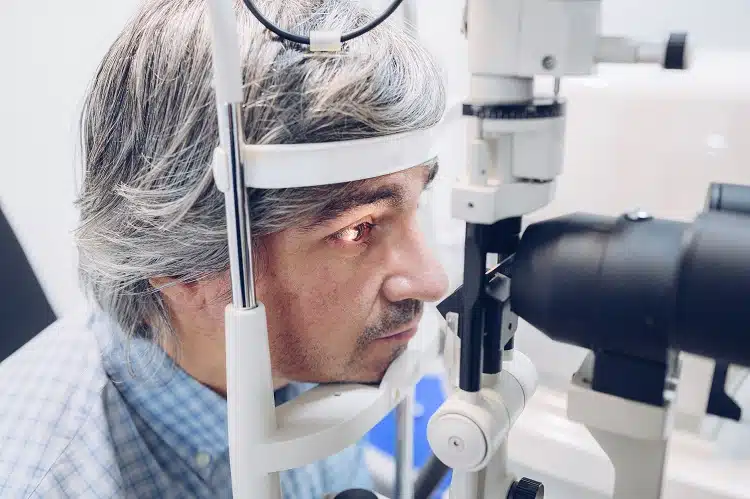Tailor-Made Vision: How to Select the Right Eye Care Solution

Eye care requirements depend on the type of lifestyle you lead.
In the United Kingdom, at least 76% of women and 68% of men have worn glasses at some point.
Generally, it’s more common for people over 50 to wear glasses but with multiple solutions and healthcare innovations available, it’s worth considering if glasses are right for you.
Macular degeneration, or age-related macular degeneration (AMD), is an eye disorder strongly associated with aging, and that’s one reason you need to have your eyes checked regularly when you reach middle age and beyond.
Exploring different approaches to eye care means that you’ll be able to find the most suitable one for your daily activities.
Whether you enjoy spending quality time in the countryside or work long hours behind the screen every day, it’s possible to find a comfortable and uniquely tailored option.
Why is it important to look after your eyes?
As you reach middle age, getting your eyes tested regularly will help you to identify more than just problems with your vision.
Eye health is critical to other aspects of your overall wellbeing, and being able to see clearly could improve your daily life more than you might expect.
Finding the most suitable correction technique is equally important.
Once you’ve received a prescription from your optician, it’s up to you to decide whether you’d like to use glasses, contact lenses, or proceed with more permanent treatment.
Which vision correction treatments are available?
- Contact lenses
Almost anyone can wear contact lenses. They make an invisible, practical alternative to traditional glasses, and people who wear contact lenses report a higher quality of life than their glasses-wearing counterparts.
You can get single-use or reusable contact lenses, and it’s easy to start a new routine with this quick and simple solution to clearer vision.
If you’re active or like to participate in combat sports, contact lenses could be the most naturally suitable solution. And according to experts from contact lens specialists Lenstore, changing from one to the other might be easier than expected:
“Contact lenses can be daunting for those who haven’t used them before, with the idea of putting something in your eyes.
For many, touching their eyes is an off-putting concept. But contact lenses can feel a lot more natural than glasses and in some cases more comfortable for longer periods, particularly for those with higher prescriptions.”
- Glasses
Glasses are frequently the most common option for those starting their eye care journey later in life.
After an eye test by an optician or healthcare professional, a prescription can be applied to lenses in almost any size, shape, or colour frames imaginable.
Remember that prescription glasses differ from fashion glasses, sunglasses, and specialist glasses for cycling or other sports.
If you’re serious about your eye health, insert prescription lenses into every pair of glasses.
And even though contact lenses are deemed more convenient than glasses, classic specs are suitable for several groups.
These might include people with dry eye conditions, who struggle to insert and/or remove contact lenses, alongside younger children.
- Laser eye surgery
If your prescription has remained the same for at least two years, laser eye surgery could be the best solution with which to improve your vision.
It involves changing the shape of your eyes’ front layer (cornea) to help you focus better.
Generally, laser eye surgery is a pain-free procedure. It’s also a permanent solution and completely removes the need for you to wear glasses or contact lenses.
Regular prescription payments would become a thing of the past, and you can enjoy the freedom to see and move around in any environment.
However, laser eye surgery is a significant investment.
Though the changes are permanent, you might still need to use glasses for some tasks if your eyesight is very poor. And as with all surgical procedures, there are some risks to consider too.
- Prescription eye drops
Eye drops are an emerging form of vision-correcting technology, currently available on prescription in the US. Specifically developed to help ease the effects of age-related blurry vision, or presbyopia, they work by shrinking your pupil to the correct size for focusing on a specific task.
Prescription eye drops are intended to replace reading glasses.
They can be applied once a day and are said to start working within 15 minutes, making them best suited to reading from a book, newspaper, or computer screen.
If you can’t access these prescription eye drops, other types are available on the NHS.
Those who suffer from dry, itchy eyes and need soothing relief could benefit from eye drops containing carmellose sodium.
Overview
Changing from glasses to contact lenses could be the best approach for your eye care if you lead an active lifestyle.
In addition to removing the worry of damage to your glasses or injury to your face, contact lenses offer the same quality correction to your vision.
If you only need vision aids in certain situations, like reading and looking at things closely, a pair of reading glasses could do the trick.
You won’t need to wear them all the time, and they could be kept conveniently next to your favourite armchair.





